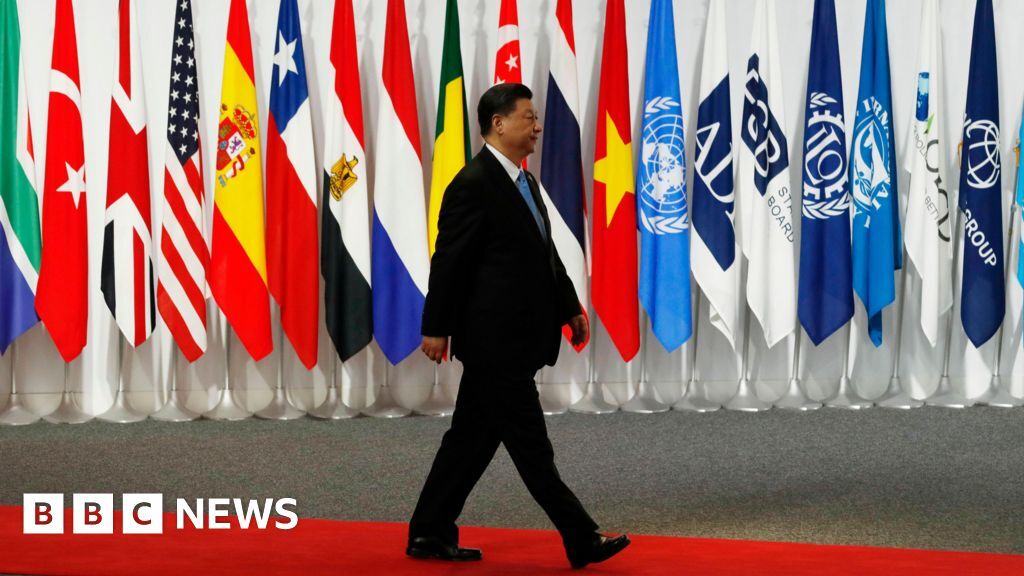Guess who got invited to Xi's grand military parade in Beijing? And, more importantly, guess who didn't? Ketchup incoming
Why it matters
- The guest list for Xi Jinping's military parade indicates the geopolitical alliances and tensions currently shaping global politics.
- Notable absences underscore China's strategic isolation and the challenges it faces in garnering international support.
- The significance of military displays such as this one lies in their ability to project power and influence on the world stage.
As preparations ramp up for a grand military parade in Beijing, the spotlight is on the guest list, revealing key players in the international arena who have been invited—and those who have been notably excluded. This event, designed to showcase China's military prowess, is more than just a display of strength; it serves as a barometer for diplomatic relations and the evolving landscape of global alliances.
The parade, which is set to take place in the heart of Beijing, will feature an array of military hardware, troops, and a demonstration of China's strategic capabilities. Invitations have been extended to various heads of state and military leaders, signaling China's attempts to strengthen diplomatic ties with certain nations. However, the absence of significant leaders from various countries has raised eyebrows and sparked discussions about the implications of these diplomatic snubs.
Among those invited are leaders from nations that have historically maintained positive relations with China, reflecting Beijing's ongoing efforts to solidify partnerships in an increasingly polarized world. The presence of these leaders at the event is expected to send a strong message of unity and support, particularly amidst rising tensions in regions such as the South China Sea and Taiwan Strait.
On the flip side, the list of those not invited is equally telling. High-profile absences include leaders from Western nations, particularly those that have been vocal critics of China's policies, including human rights concerns and territorial disputes. This exclusion hints at a broader narrative of isolation for China as it navigates complex relationships with the West.
The implications of these invitations and absences extend beyond mere optics. They reflect the underlying geopolitical realities and the shifting alliances that are defining the current global order. As China continues to assert itself militarily and economically, the reactions of other nations to its military displays will be closely watched, as they may signal support or opposition moving forward.
Moreover, military parades have historically been used by nations to showcase their military capabilities and send messages of deterrence to potential adversaries. For China, this parade represents an opportunity not only to display its military advancements but also to reassure its allies of its commitment to regional stability and security.
However, the strategic implications of such events cannot be underestimated. The absence of leaders from major powers could suggest a growing divide between China and the West, particularly in light of ongoing tensions over trade, technology, and military posturing. As nations weigh their relationships with China against their own national interests, the fallout from this parade could ripple through diplomatic circles for months to come.
In recent years, military parades have evolved into spectacles of national pride and power projection, often accompanied by elaborate rehearsals and significant media coverage. China's upcoming display is expected to be no different, with extensive preparations underway to ensure a grandiose event that highlights its military capabilities and strategic ambitions.
As the date approaches, analysts will be scrutinizing not only the military hardware showcased but also the political messages conveyed through the guest list. The interactions and engagements among attending leaders could also provide insights into the future of China's foreign relations, particularly with nations that have historically aligned themselves with Beijing.
In conclusion, Xi Jinping's military parade is poised to be a pivotal moment in China's diplomatic relations, offering a glimpse into the power dynamics at play on the global stage. With the world watching, the outcomes of this parade—both in terms of military exhibition and diplomatic engagement—will impact China's standing in international politics for years to come.











